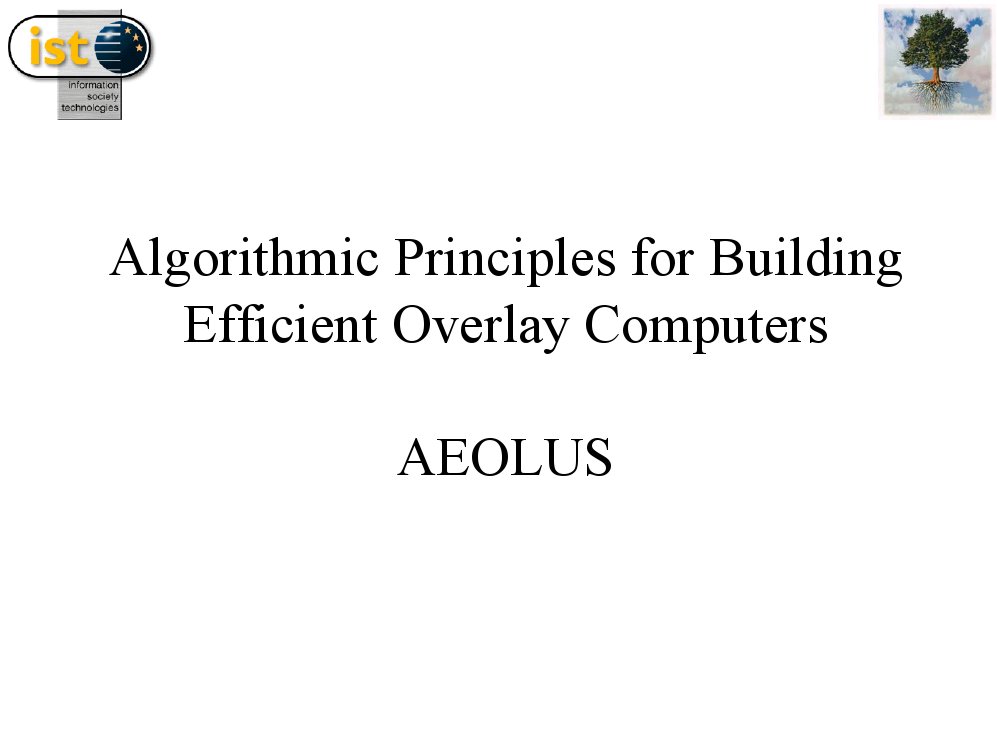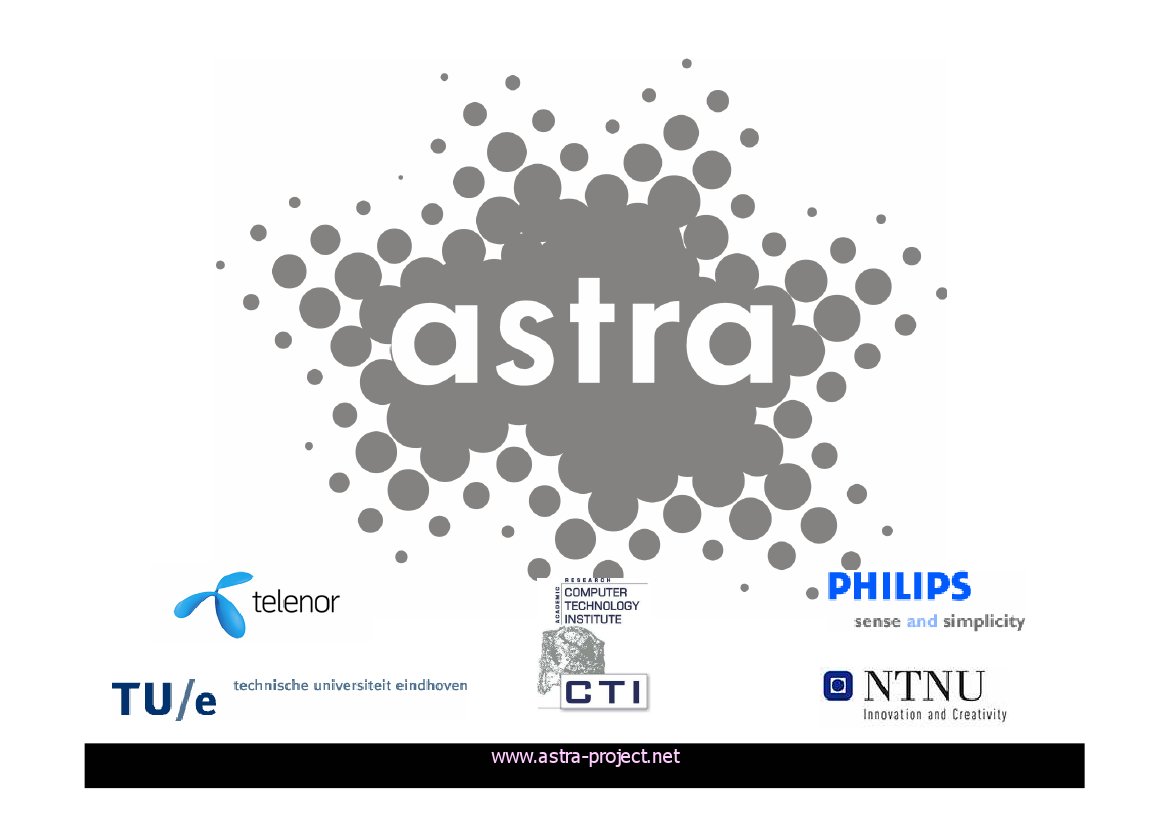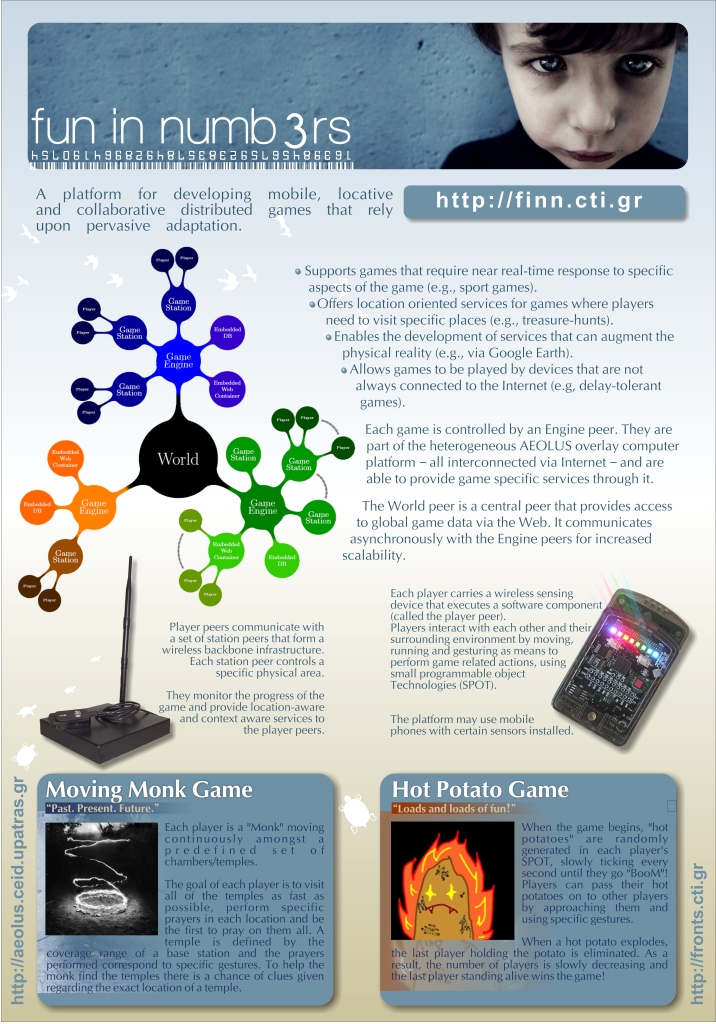| FET Exhibition |
|
The exhibit will incorporate the theoretical and experimental studies, investigations and findings obtained by researchers of the Computer Technology Institute conducted through a series of FET funded research projects.
Recent explosive growth of wireless networks and the Internet gives rise to the possibility of a global computer of grand-scale consisting of heterogeneous connected ambient ecologies of artifacts and services, globally available (i.e. via Internet) and able to provide its users with a rich set of high-level integrated services that make use of its aggregated computational power, storage space, knowledge and information resources. Achieving this efficiently and transparently is a major challenge that can be overcome by introducing an intermediate layer, the overlay computer, which extends the currently available middleware layer. We will demonstrate a wide range of software components developed in the context of the EU FP6/FET Integrated Project AEOLUS (Algorithmic Principles for Building Efficient Overlay Computers) that enable the efficient and transparent access to the resources of an Internet-based global computer, including: - wireless extensions of multiple wireless networks of autonomous tiny devices of different technologies that monitor the physical environment in several geographic areas, with a particular application/system for monitoring energy saving that collaborates with Google Earth. - the FinN platform (Fun-in-Numbers) for developing and playing mobile, locative and collaborative distributed games, whereby players interact with each other and their surrounding environment by moving, running and gesturing as a mean to perform game related actions, using small programmable object technologies. We will also show case an experimental infrastructure that takes advantage of the wireless extensions, the mobile users and the surrounding computing devices though a service oriented architecture and tools for enabling end-user communities to create awareness systems and services, that is computer mediated communication systems that help individuals or groups build and maintain a peripheral awareness of each other. The awareness system is developed in the context of the EU FP6/FET Project ASTRA that explores the concept of pervasive awareness, (i.e., where awareness information is automatically generated as a result of personal/home devices exchanging information about the user semi-autonomously) and design awareness systems that support it. We will present the first results of the EU FP7/FET Project ATRACO that contributes to the realization of trusted ambient ecologies. Interactive appliances, collaborative devices, and context aware artefacts, as well as models, services, software components are parts of ambient ecologies, which form the infrastructure that supports user activities. The user tasks that compose an activity are supported by an ad-hoc orchestration of ubiquitous computing services, which are manifested via an ecology of smart artefacts. Research in this project builds upon previous results, systems and tools that were developed in the context of FET projects e-Gadgets and Plants. We will present the first results of the EU FP7/FET Project FRONTS that intends to develop an understanding of such societies of small or tiny heterogeneous artifacts that operate in a constantly changing networked environment. Our goal is to form a unifying framework for adaptive networks of artifacts that hopefully will enable us to come up with a coherent working set of design rules for such systems. In a nutshell, we work towards a science of adaptive organization of pervasive networks of small or tiny artifacts.
Related Links
Objective of the exhibit
Additional Material for EU FP6/FET Integrated Project AEOLUS
Additional Material for EU FP6/FET Project ASTRA
Additional Material for EU FP7/FET Project FRONTS
Additional Material for FinN platform (Fun-in-Numbers)
|






